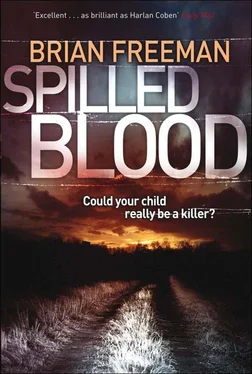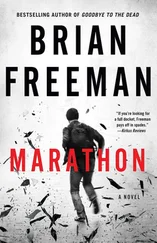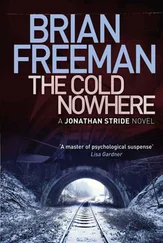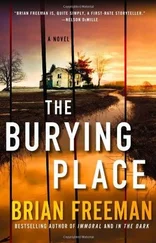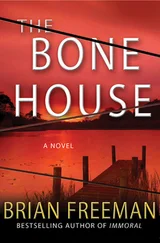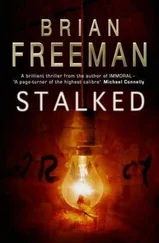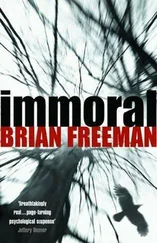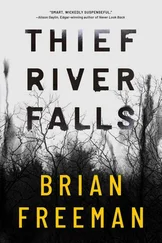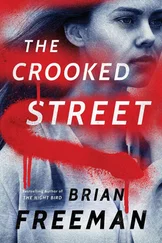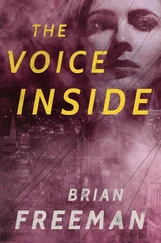Chris nodded.
‘Yes, we’re investigating this man who calls himself Aquarius,’ Altman said, ‘but we don’t know if he represents any actual threat.’
‘Whoever he is, he obviously has a bitter grudge against Florian.’
‘So what are you suggesting? Aquarius followed Florian’s daughter and killed her?’
‘I don’t know. Maybe he did. Can you rule it out?’
Altman shook his head. ‘Mr. Hawk, I know you want to help your daughter, but you can best do that by focusing on your legal strategy, not by putting on rose-colored glasses about her innocence. Right now, a good lawyer would be thinking about ways to make a jury sympathize with what she did, not dreaming up farfetched conspiracy theories.’
‘Olivia didn’t do it,’ Chris said.
Altman spread his hands in resignation. ‘Fine. It’s your call.’
‘I’d like to review everything the police have gathered so far in this case. Is that going to be a problem?’
‘No, I’ll make sure we get copies in your hands promptly.’ Altman added, ‘Perhaps that will open your eyes.’
Chris ignored the jab. ‘There’s a detention hearing tomorrow morning. Where do you stand on that?’
‘I have to oppose, even though I’m not likely to win. Olivia doesn’t have a criminal history, but there’s a real threat of more violence if she’s released.’
‘She’s not going to harm anyone, Mr. Altman,’ Chris said. ‘You know that.’
‘Actually, I’m thinking of her own safety. You should be, too.’
‘What do you mean?’
Michael Altman frowned. ‘I mean, if she’s free, she’s in danger. That’s the reality in this county right now, Mr. Hawk. The safest place for your daughter may be in jail.’
4
Chris had last visited the town of St. Croix four years earlier, when Hannah’s mother passed away at the age of seventy-two. He thought of it as a place where kids were born, grew up, moved away, and never came back. The old-timers were the only people who stayed, living out long lives among the harsh Minnesota seasons and eventually emptying the town one by one. As the years passed, the population of the church cemetery outpaced the houses and farms.
They were dying faster in St. Croix now. Faster and younger.
He drove south on the highway out of Barron, tracking the banks of the Spirit River. Five miles later, the road turned east and followed a narrow stream for several more miles before heading south again toward Iowa. It was easy to miss St. Croix along the highway. Several miles from the split at the river, the speed limit dropped to thirty miles an hour, and he turned left into the tic-tac-toe grid of town streets. He could see the white bell tower of the Lutheran church jutting above the roofs of the houses. The wide blocks were empty. It was dusk, and the four hundred residents of St. Croix were saying grace and eating dinner.
His ex-wife’s maiden name was Grohman. Hannah Grohman, daughter of Josephine and Cornelius Grohman. She’d kept the name Hawk after the divorce, because she said it fit her personality better. That was true. Hannah had keen eyes for trouble, and she dove into situations without fear and with wicked strength. To her neighbors, though, she was Hannah Grohman, living in the house where she’d been born. She was a hero in St. Croix, because she had returned home after years away. She’d rejected the city and gone back to the country. She’d brought her daughter with her. No one did that.
Chris parked outside the Grohman home at an intersection immediately across the street from the church. He saw lights inside the two-story house and caught a glimpse of someone moving behind the curtains. He recognized her silhouette, and his heart seized. It was too early to go inside. Too early to see her.
He got out of the car and took big strides into the middle of the lawn, which was muddy from rain. Lots were large here; there was plenty of space. Trees were spread far apart, casting large pools of shade and leaving other patches for sunshine. The house itself had white wooden siding and a sprawling front porch, furnished with four Adirondack chairs. The black roof had a sharp angle above the second-floor windows. The house had stood in this place for nearly a century.
The winding branch of the Spirit River flowed immediately behind the house, so close that Olivia probably could have jumped to the water from the window in her upstairs bedroom. It felt like a river out of Huckleberry Finn , with evergreen trees leaning over the sides of the bank and dipping their branches in the lazy current. With no leaves on the trees yet, he could see the brown water shouldering toward a gray metal railway bridge two hundred yards away. On the other side of the stream, dormant tracts of corn fields awaited the spring thaw.
Chris stood alone on the bank, motionless, watching the quiet town of St. Croix as night fell. Above the moldy dankness of the water, he smelled the aromas from town kitchens. Roast chicken. Cookies. Two dozen types of hot dish. A few people had left up their holiday lights to blink in white rows on the roof lines. Eventually, he heard chimes in the bell tower of the church. It was eight o’clock. When the bells tolled for the eighth time and went quiet, silence fell over the town like a shroud. He didn’t see a soul.
This was what Hannah had left him for. This lonely scene stripped from a Christmas card.
He knew he was being unfair. A fifteen-year marriage didn’t end in a heartbeat, and it didn’t end without both of them forgetting to care for it. Back then, he’d felt blindsided when his amazing, beautiful wife had turned her back on him and taken away his daughter. He’d worked for years to make a life for the three of them, to keep them safe in a world that offered little security. He’d assumed that was what she wanted, and instead she’d said: I can’t be that woman anymore.
That woman. His wife.
It began with the death of Hannah’s mother. Josephine Grohman, iron-willed like her daughter, had founded the Grohman Women’s Resource Center in Barron to address what she called an appalling inattention to the health and social service needs of rural women. She’d spent decades as a lightning rod for controversy, and her death had left a gaping void in the politics of southwestern Minnesota. During her slow decline, she’d made it clear that she wanted Hannah to fill that void. To come home and continue her legacy.
Chris had never believed his wife would go; she would never leave him. He was wrong. She’d been silent for a year as she wrestled with her destiny, but then she came out of the shower, crying, took his hands, and told him she was going home. Just like that. It took him a long time to give up his bitterness. It took him two years to realize that the end of their marriage hadn’t begun with Josephine’s death. It had begun much earlier, as they led a slow march away from each other and watched it happen like spectators, doing nothing to stop it.
Not her fault. Not his fault. Their fault.
He thought about what Olivia had told him at the jail. Mom’s got it. Cancer. The same disease that had claimed Josephine’s life. He was devastated at the news and hurt that she had insisted on going through this alone, as if she assumed he couldn’t bear it. She was probably right. He stood there, invisible among the trees, trying to gather the courage to see her. Trying to find a way not to melt at the sight of her face.
Chris headed for the house, but he stopped when a rumbling truck engine interrupted the solitude of St. Croix. Not even a quarter-mile away, rubber squealed as a vehicle braked sharply and turned off the highway. He saw the twin beams of headlights, but as he watched, the headlights vanished. The pick-up truck was dark. It cruised through the criss-cross grid of streets, coming closer. It passed the church and came straight toward the intersection. He couldn’t see faces through the dark glass.
Читать дальше
